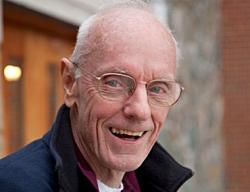Too Late for the Party?
Many years ago I was invited to a party at the home of an acquaintance who lived out a ways on the southern shore of Long Island. It wasn’t just another party, but something special in a home that was more than just a house. Let’s call it a mansion. The locale was not just any old suburban town, but it was like one of the Hamptons—a plush community that could have been the setting for “The Great Gatsby.” I didn’t know the hosts too well, but I was looking forward to the party for other reasons, as you might suspect.
When the night came, I left New York City by car, allowing myself what I thought was a reasonable amount of time to make it to the party on time. What I hadn’t counted on, though, was the heavy weekend traffic and the maddening delays owing to construction work being done on the highway. So, what should have been a 45-minute drive took me two and a half hours.
I pulled into the driveway of the host’s elegant estate, rang the door chimes and was met by a butler who accompanied me to the banquet hall. There I found that the clean-up process was well underway. Tables were being cleared and guests were already standing in what looked like a long goodbye to the hosts. Great! I had arrived just as the party was ending. I was too late for the fun.
Just then, a good friend of mine noticed me and beckoned me over. He couldn’t help but notice the disappointment on my face, I guess, as he introduced me to the host of the party, a closer friend of his than of mine. While we were chatting, others I knew came over to say hello. Before long a dozen of us were standing around trying to figure out what to do. The host graciously solved our problem when he brought us over to the lounge, opened the wine closet, and instructed the workers to bring over the leftovers so that we could continue the party on our own.
Too late for the party? Nope. Our own little party was just getting underway.
Leave it to a priest to find an allegorical meaning in an incident like this, you might be thinking. As a matter of fact, that’s just what I have done more often than I could hope to remember. Usually it’s been when preaching at funerals to suggest that maybe, even as one party is ending, another is just getting underway.
Sometimes I speak about the unanticipated problems that make us late in the first place. Not the traffic jams and the construction delays that slowed me down that evening, but the other problems in our life journey that get in the way. For some there are persistent marriage difficulties; others may have lost a few years to drug or other addictions. Whether self-inflicted through our own bad choices or roadblocks that are just circumstantial, the result is that we come to the table a lot later in life than we may have expected. Sometimes our life is nearly over before we are able to get things in order.
It reminds me of an old German Jesuit who spent most of his life serving in New York. The word was that he was a delightful companion to all who came to him. But now and then, he would nod his head ruefully and say: “Ach! Too late vee become schmart!” He was probably reflecting on his own experience, and many of us could have made the same comment about ourselves.
Even so, late is better than never. Even if the plates are being removed from the table and some of the guests are already standing, lots of friends are still there ready to move from the banquet room to the lounge. (Wasn’t there something we heard to the effect that there were many rooms in the mansion?) Plenty of our friends are still there, even if we have arrived later than we expected. So let the party begin!






